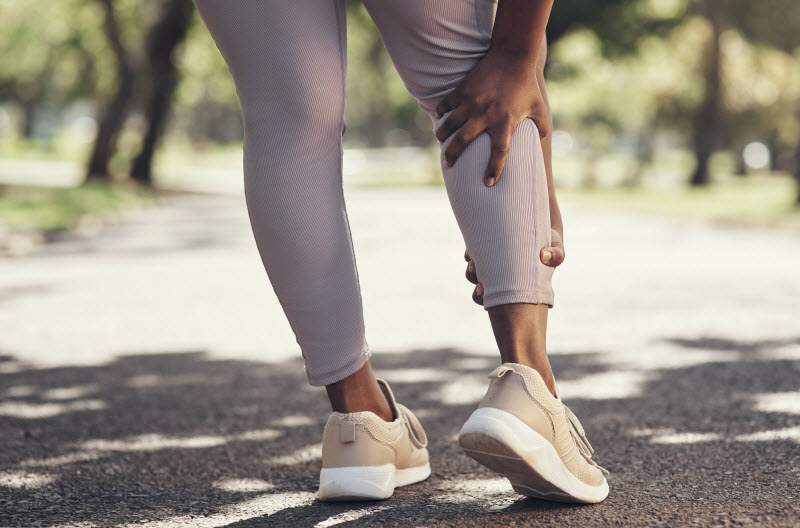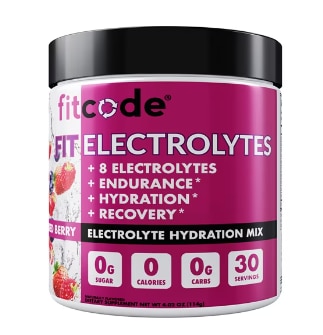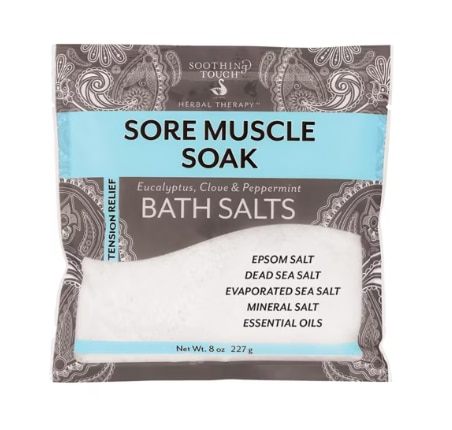You may not think too much about your muscles on a daily basis, despite the fact they allow for any and all movements from a smile or frown to walking, carrying and stepping. However, when your muscles act up, get sore or start to spasm or cramp, they demand much more attention, especially if you are dealing with pain and discomfort.
About 60% of adults experience muscle spasms and cramps. Aging, inactivity, activity, diet and lifestyle habits can all contribute to their occurrence, and the reasons for getting them may not always be obvious. But there are ways to prevent and treat muscle spasms so you can get back to ignoring them. Keep reading to find out more.
What are muscle spasms?
According to the National Library of Medicine, muscle spasms are defined as “persistent, involuntary muscle contraction (not including spasticity, a phenomenon of central nervous origin).” Spasms are similar to muscle cramps and can be painful. The difference between muscle spasms and cramps is the length of time. It’s considered a cramp when a muscle or group of muscles is locked in a spasm for several seconds or more.
Some may think of muscle twitches as spasms as well. Twitches are typically tiny, fluttering involuntary movements of a muscle that are not painful but can be irritating. These smaller movements are due to a single motor nerve fiber. Although they are painless and can go unnoticed, muscle twitches can indicate another medical issue, such as an autoimmune disorder, stress, or nutrient deficiencies.
What causes muscle spasms?
A range of factors can cause muscle spasms. Sometimes, spasms occur in a specific muscle or muscle group when a nearby muscle is painful. For example, a spasm in your trapezius muscle located in your upper back can result from pain in your bicep. Joint problems can also cause muscle spasms in nearby muscles
Pain is most common in muscle spasms when they result from a lack of blood flow to the tissues, leading to a drop in pH, which increases acidity and the release of pain-producing substances in the muscle tissue.
Common causes of muscle spasms include:
- Certain medications: such as those for hypertension, cholesterol and heart disease
- Dehydration: from sweating, not drinking enough water, too much caffeine
- Electrolyte imbalance: from sweating, poor diet
- Specific conditions: alcoholism, hypothyroidism, myopathies, renal disease with dialysis
- Exercise: intense or unaccustomed use of muscles
- Nutrient deficiencies: including magnesium, potassium, calcium, sodium, B vitamins
- Fatigue and stress: lacking sleep and too much stress can cause twitches and spasms
Athletes and recreational gym goers or sports enthusiasts can experience muscle spasms, twitches, and cramps from intense use. If you’ve ever gone for a very long walk and felt your leg muscles twitching afterward, you know the feeling.
Dehydration from sweat and intense or more activity than you are accustomed to lowers your electrolytes like sodium, potassium, and calcium, which are minerals that regulate muscle contractions. Reducing electrolyte levels and not drinking enough water increases the likelihood and risk of spasms and cramps.
How to prevent muscle spasms
Preventing muscle spasms starts with understanding what the potential causes may be. Your best strategy will be to consume a nutrient-rich diet, get enough sleep, reduce stress and ensure you stay hydrated.
Stay hydrated and nourished
Proper hydration and nutrient balance is your primary defense against twitching and spasms. Especially if you are an active individual who may end up dehydrated and lacking electrolytes more easily and often. Focus on eating more foods that boost muscle function and improve tissue blood flow. Choose whole foods containing water, magnesium, potassium, calcium, iron, B vitamins and sodium, including:
- Dairy products such as yogurt, milk and eggs
- Leafy greens
- Bananas
- Potatoes
- Pickles and fermented foods
- Watermelon, celery and cucumbers
- Nuts and seeds
- Lean poultry and red meat
- Salmon, sardines and trout
Take an electrolyte or multivitamin supplement
Depending on your diet and lifestyle, a supplement could help prevent muscle spasms and fill in gaps in your diet. If you are exercising, being active for long periods, or spending time outdoors in hot or humid conditions where you will sweat a lot, electrolyte supplementation is recommended.
Electrolyte beverages will improve your hydration, regulate fluid levels, balance Ph, boost and balance minerals responsible for muscle contractions, prevent fatigue and ward off the dangerous consequences of losing too many vital minerals.
Multivitamins can fill in gaps in your nutrition or help you recover from deficiencies. Active people, especially women, are commonly deficient in iron, magnesium and other nutrients that can contribute to muscle spasms.
Stretch and move your body
Before and after exercise, spend some time warming up with dynamic movements, mobility work and stretching. Break up periods of inactivity and sitting with movement breaks to increase blood flow and prevent muscle tightness or pain that can lead to spasms.
How to stop muscle spasms
When muscle spasms occur, you can do a few things in the moment to relieve them, prevent them from worsening and becoming cramps, and eliminate the pain.
- Stop any activity or movement that triggers the spasm or pain
- Stretch the affected muscle or muscle group
- Perform self-massage or have someone else massage the area in a stretched position until it stops.
- Use a massage gun, trigger ball or foam roller on the spasming area
- Use a hot water bottle or heat pad on the spasm or cramping area
- Try cold therapy with ice, a cool pack or a cold shower to relieve tension and spasms
- Hydrate and replenish electrolytes with sports drinks, low-fat chocolate milk or nutrient-dense foods like dairy, potatoes, bananas and leafy greens.




